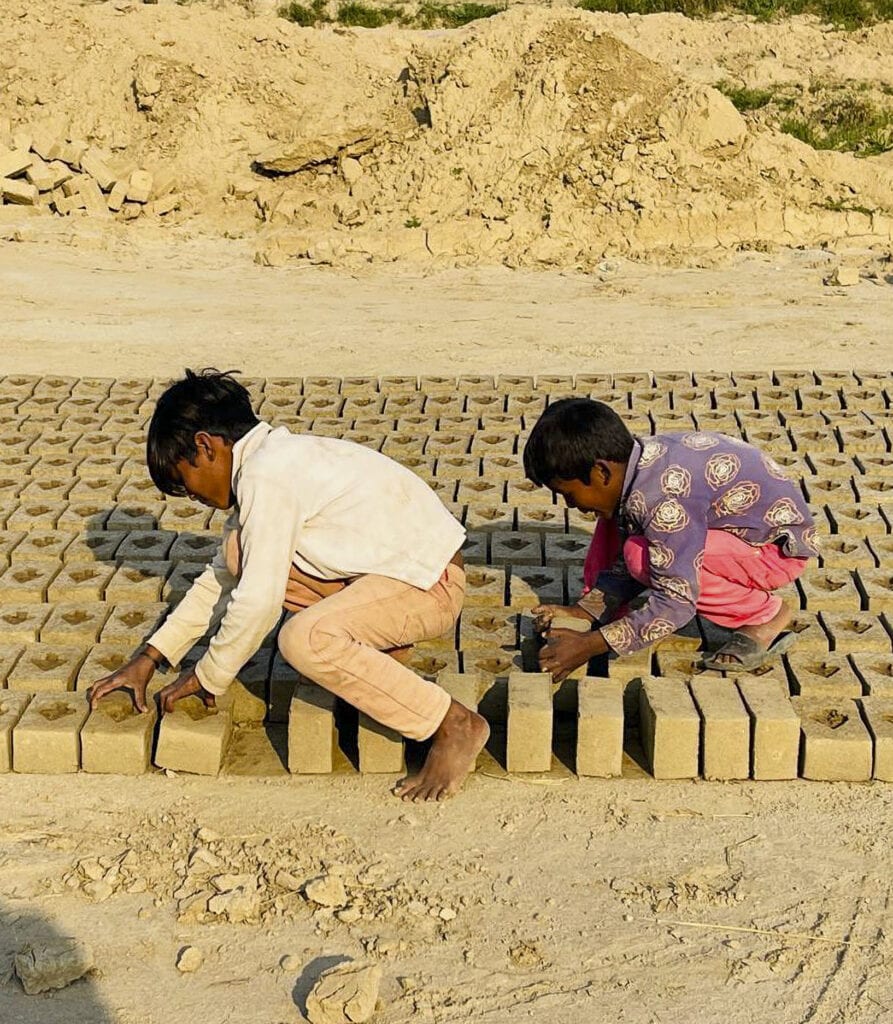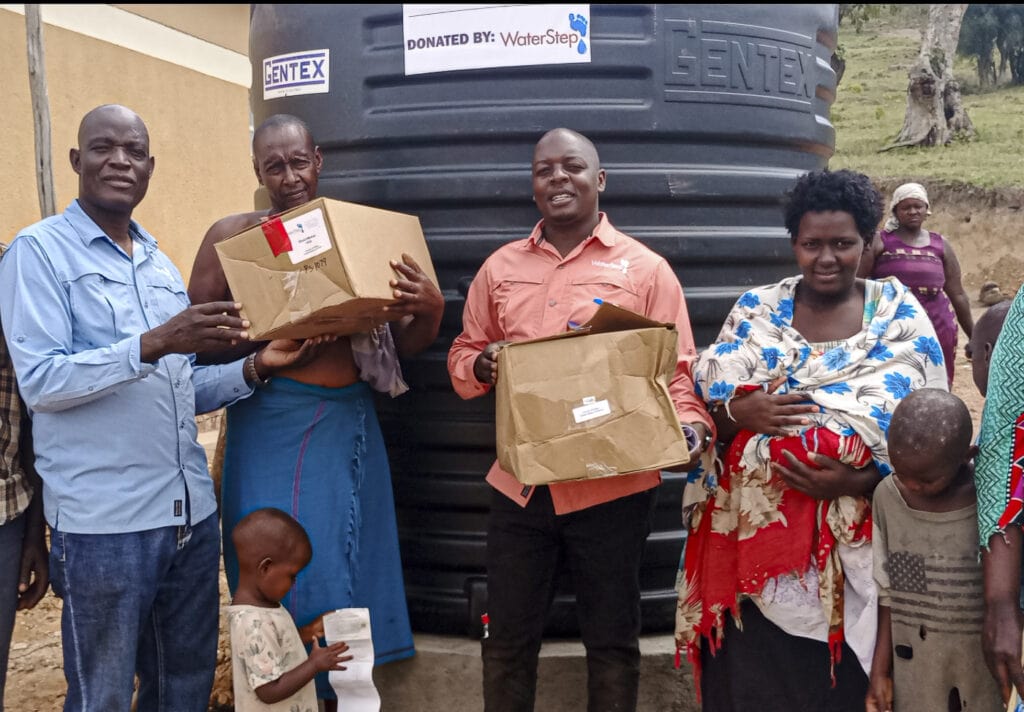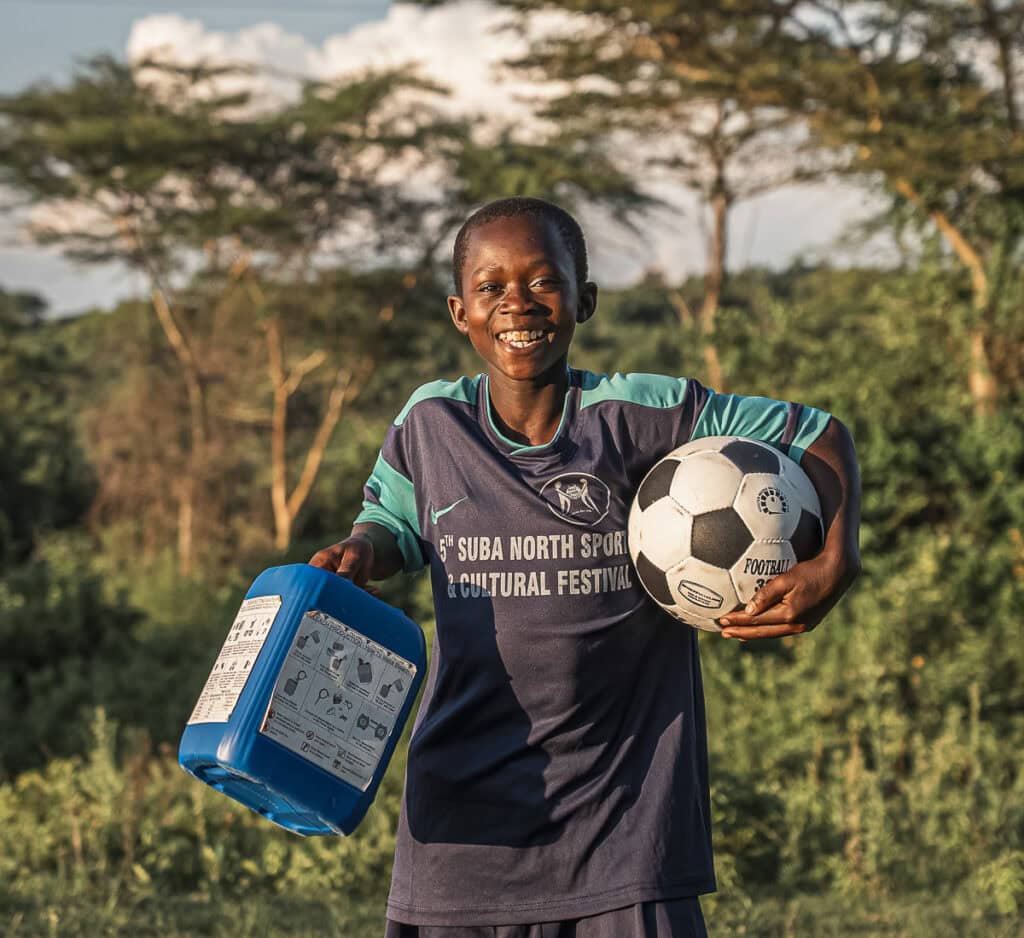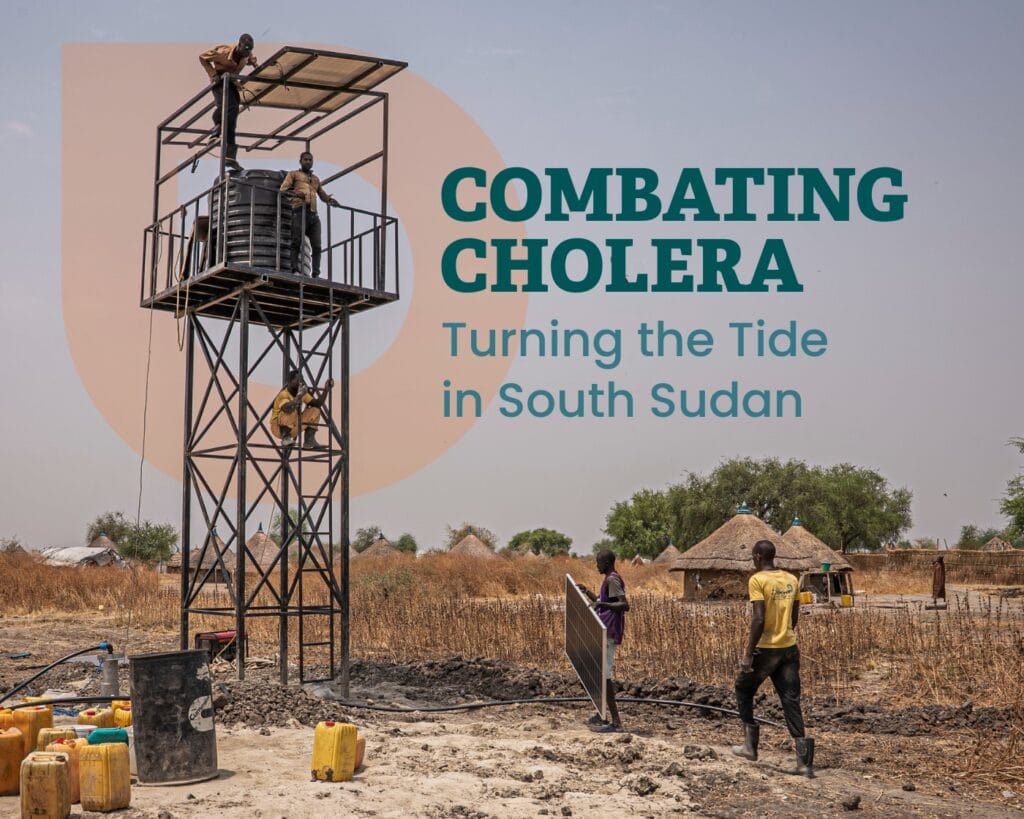These Mothers Faced an Impossible Choice: Dirty Water or No Water
Thanks to WaterStep’s expertise and Ana Lorena’s compassion, a Costa Rican river community found dignity through safe water.
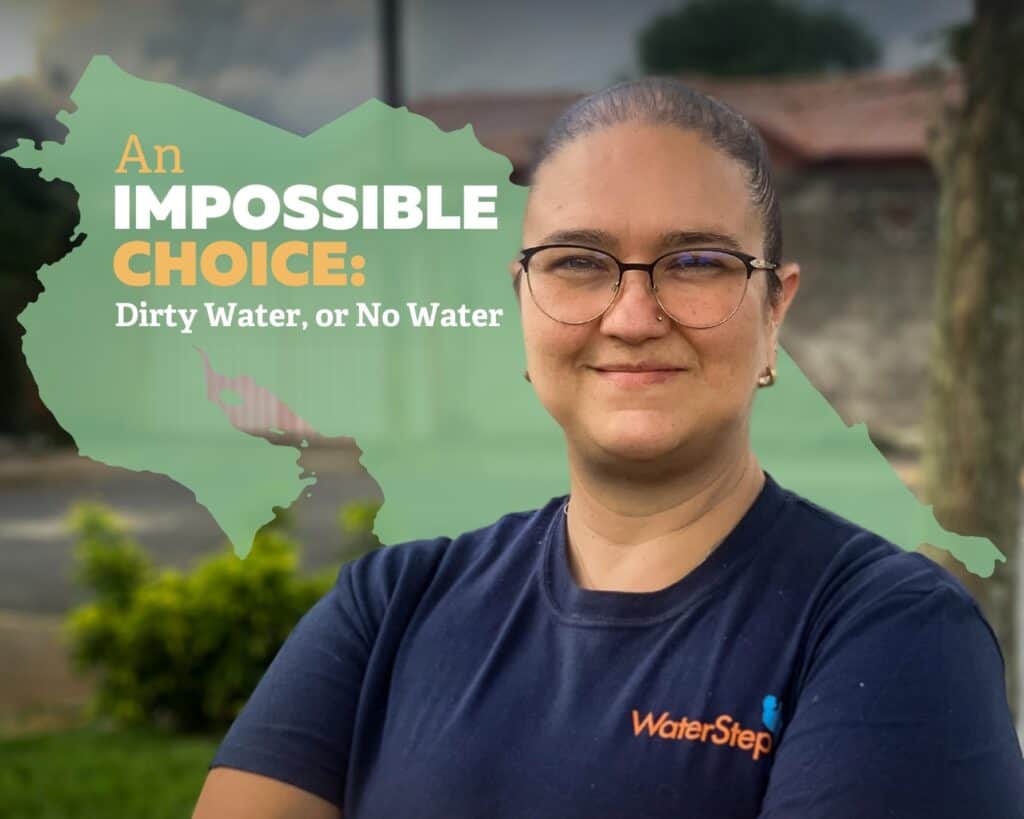
WaterStep’s expertise and a mother’s compassion brought a Costa Rican community dignity through safe water
/ By Kristina Goetz
Ana Lorena had already been working for WaterStep for six or seven years as a translator in her home country of Costa Rica bringing safe water to those without. She’d been all over the country and seen many poor areas.
But in 2015, during her country’s rainy season, she visited a place that would change her forever.
She rode a bus south past beautiful homes in the capital city of San Jose to a small town called Alajuelita in a neighborhood called Las Gavetas, or the drawers, in English.
Ana stepped off the bus and walked two blocks to the Virilla River. There, near the river’s edge, were shacks, some cardboard, some corrugated metal. She’d never seen anything like it.
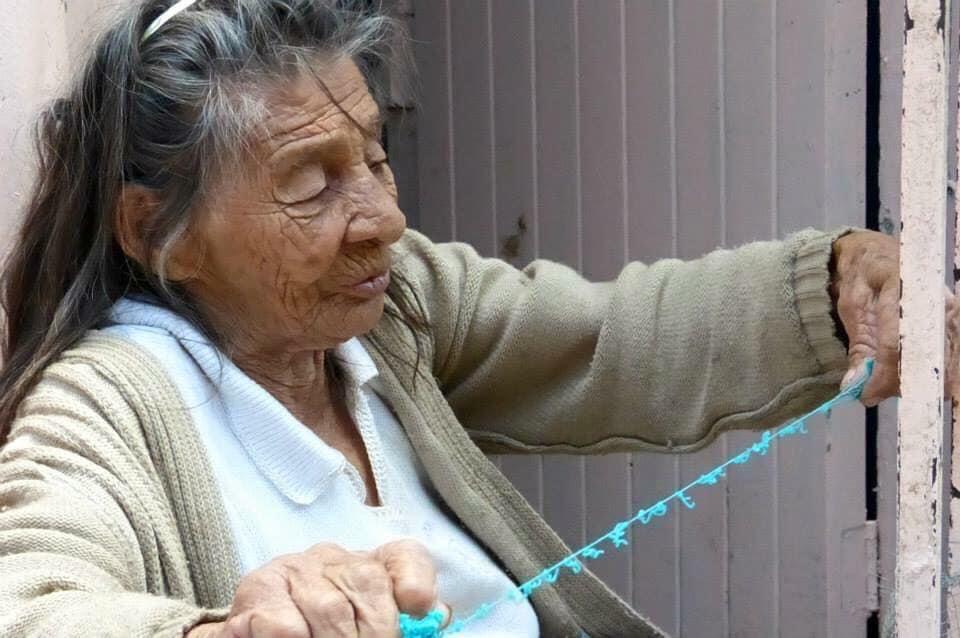
Though Costa Rica is an environmentally conscious country and a large portion of it is protected by law, people still illegally dump garbage in the river. She saw refrigerators, couches and plastic floating by. But Ana’s most vivid memory was the smell of the place.
People whose shacks lined the river openly defecated in the water. There was no way for anyone to be clean.
In Costa Rica, elementary school children wear a uniform – black pants and a white shirt. But all the children were filthy, and Ana knew they were ridiculed because of it.
“There was no way for children to be clean,” she said. “When they went into the water to bathe, they came out as dirty as they went in.”
The children smelled. Their clothes smelled. Everyone and everything smelled.
“I remember an old lady named Claudia sitting outside her shack on a bucket,” Ana said. “The mothers had no way to give their children safe water. They collected it from the river. The best they could do was boil it. It was one of the toughest moments for me because they were all women. It was noticeable that no men were there. Their husbands were all in jail. These women were 100 percent unprotected.
“Being a mom – I have three boys – I put myself on their shoes to know how awful it would be to not be able to provide food and safe water to my children. They have to cook with it, bathe with it, drink it.”

Mothers had to choose whether they’d give dirty water to their children or no water at all.
Either way, the children were at risk of dying.
“It was shocking to me as a mom and as a woman,” she said. “What if you were there by yourself? How would you clean yourself? We have necessities as women. And as a mom, you have to pretend that everything is ok. And for this old woman: How could she get old in these conditions?”
BRINGING RELIEF
In this community, Ana served as one of five translators for WaterStep and helped with logistics to bring a safe water project to this community. That included a ChlorineGenerator, which meant the community would, for the first time, have safe drinking water.
Ana worked alongside a local minister named Miguel Alberto Rojas who brought food and played with the children, mostly on Saturdays.
Women cried when they realized their children would have safe water to drink.

“I am so proud that I’ve been there to witness the look in their eyes, how they see us, how thankful they are,” Ana said. “And how a piece of paper, a crayon, and safe water can transform them. We may never see them again. We may not meet them again. But out of one group of 10 kids we help, if even one remembers what we did, everything was worth it.”
TRAGEDY AND RESILIENCE
In 2020, Ana worked with Pastor Miguel again to bring chlorine bleach to the community using WaterStep’s BleachMakers so mothers could disinfect their humble homes during the COVID-19 pandemic. Families were already vulnerable to constant diarrhea because of bacteria in the water.

“We love the system because it changes lives,” Pasto Miguel said.
He and members of his church, Iglesia de la Ciudad, brought bleach to 100 families for a long time. Then, tragedy struck. Mexican and Colombian mafias took over the area, and families the church had served for a dozen years fled overnight, Pastor Miguel said.
Today, it’s too dangerous to visit. So, there’s no way to know whether the ChlorineGenerator is still producing safe water because mafia members seized the home where it was stored.
But the church still has WaterStep’s BleachMakers, and members are providing chlorine disinfectant to 30 families every other month in a neighborhood called La Verbena. Most of the people are immigrants from Nicaragua who’ve fled their home country for a better life. They don’t have insurance so if they get sick from dirty water, they don’t have any way to seek treatment.
“It’s a luxury for them,” Pastor Miguel said through a translator, talking about chlorine bleach. “Many of them don’t have money to get anything – maybe some rice, maybe some beans. It’s a very serious situation.”
MORE THAN JUST WATER
Despite the poverty and tragedy, Ana knows lives have been changed.
Children in the new community can wash themselves and go to school without smelling. Their uniform shirts can be clean and white because of the bleach. Ana knows they won’t be made fun of or ostracized because they’re dirty.
And that has to mean something.
Ana reflects often on how she lives compared to other people in her own country.
“I have the option of safe water in my house,” she said. “I can take a nice, clean shower. I can open my faucet. I don’t have to buy bottled water. I can even drink safe water from the hose in my garage.”
Ana knows she can’t fix every problem, but her efforts have meant more than safe water access.
“The impact, the memories, the lives changed in that community will never leave me. Safe water is important, yes. But we have used this opportunity to bring something even bigger.
Safe water has brought love and respect and dignity to the people.”
